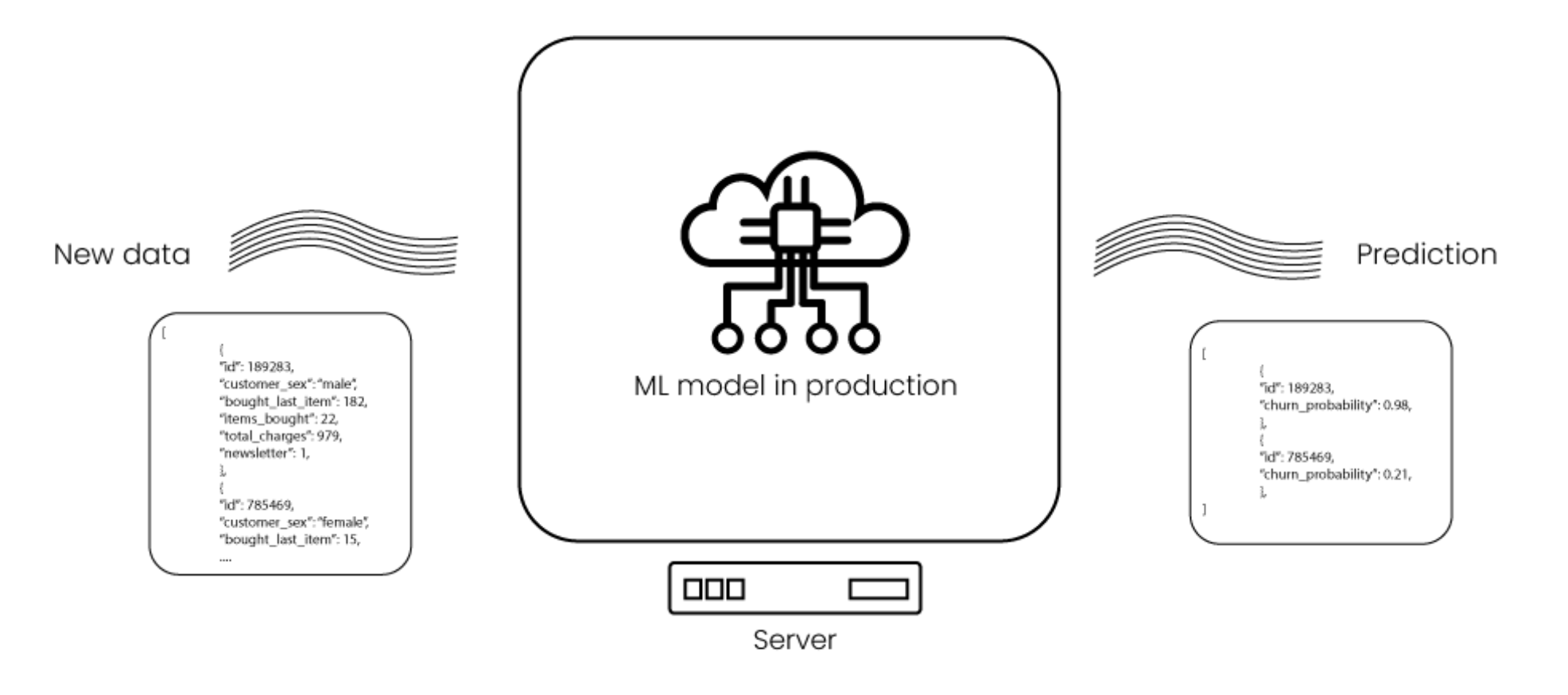Monitoring Models
Updated May 12, 2023 ·
Overview
Monitoring ensures the model is working as expected over time.
- Monitor model predictions over time
- Ensure the model works with new data

Types of Monitoring
Monitoring can be divided into two main categories:
-
Statistical monitoring
- Track model output (e.g., prediction accuracy)
- Monitor how well predictions match real outcomes
-
Computational monitoring
- Track resource usage (e.g., server load)
- Monitor incoming requests and network traffic
Feedback Loop
The feedback loop helps improve the model over time.
- Compare predictions to actual outcomes (ground truth)
- Identify model errors and why they occur
- Use feedback to improve the model
The actual results are called the ground truth, which helps assess the model's accuracy and guide adjustments
Effective Monitoring
Effective monitoring helps detect and resolve issues quickly.
- Monitor both statistical and computational metrics
- Spot issues early and fix them quickly
MLOps Tools
MLOps tools improve machine learning workflows and makes them more efficient and reliable.
-
Feature store
- Tools: Feast, Hopsworks
- Feast is open-source and self-managed, offering flexibility.
- Hopsworks is best with the full Hopsworks platform.
-
Experiment tracking
- Tools: MLFlow, ClearML, Weights and Biases
- MLFlow tracks experiments and development.
- ClearML tracks experiments and handles deployment.
- Weights and Biases visualizes experiment results.
-
Containerization
- Tools: Docker, Kubernetes, cloud services
- Docker containers apps; Kubernetes handles deployment and scaling.
- Cloud services like AWS, Azure, and Google Cloud manage containers.
-
CI/CD pipeline
- Tools: Jenkins, GitLab
- Jenkins automates the CI/CD process.
- GitLab offers CI/CD tools and project management.
-
Monitoring
- Tools: Fiddler, Great Expectations
- Fiddler tracks model performance.
- Great Expectations monitors data quality.
-
MLOps platforms
- Tools: AWS Sagemaker, Azure ML, Google Cloud AI
- These platforms cover the entire machine learning lifecycle, from data exploration to model deployment.